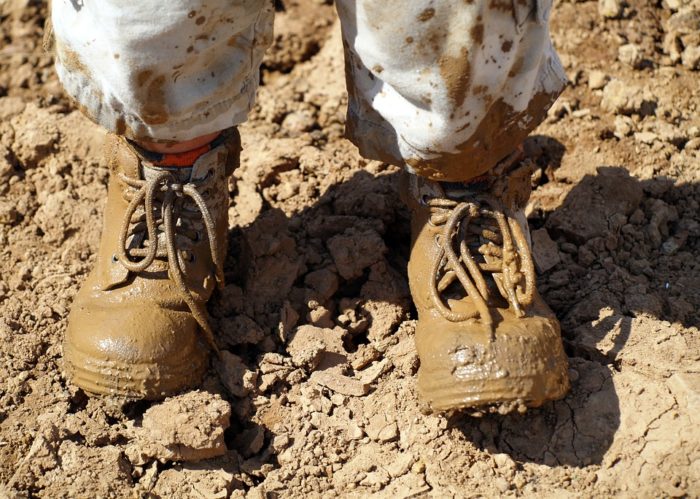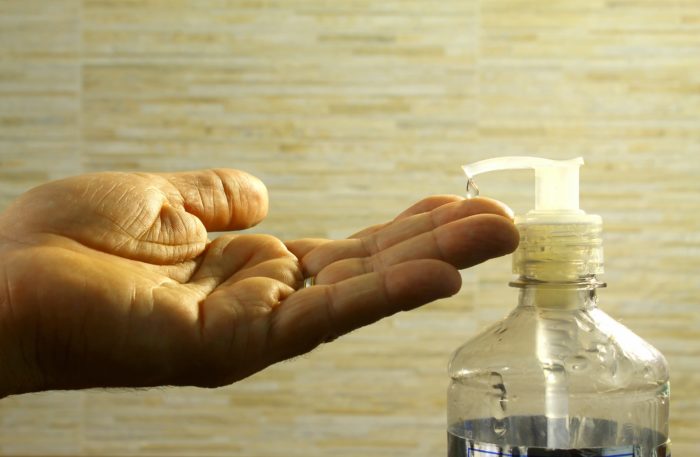It is safe to say we live in a society that is thoroughly fixated on being clean. Our compulsive urge to scrub away dirt and grime has fueled our war on germs and fed our obsession with hand sanitizer and antibacterial soaps. But is there such a thing as being too clean?
Although many consider bacteria to be nothing more than infectious—and understandably so, considering the many diseases harmful bacteria can cause—they aren’t all bad. In fact, the average human body contains about 39 trillion bacterial cells and is exposed to millions of germs each day. Along with residing in or on our bodies, bacteria (single celled microbes) can be found flourishing just about everywhere else—in the soil, in the oceans, in the air you breathe, and in plants and animals. Unlike the bacteria that cause pneumonia or strep throat, good bacteria help our bodies do numerous tasks such as absorbing key nutrients, assisting the digestive system by breaking down food, by producing vitamins in the intestinal tract, and by warding off harmful bacteria in the gut. So, if good bacteria exists, can the same be said for dirt?
As children, we were told to avoid dirt at all costs, but the positive aspects of wellness trends like Earthing and mud baths seemingly go against everything we were taught as kids. This undoubtedly makes distinguishing between good dirt and bad dirt—and harmful germs in general—harder than ever.

Good Dirt & Bad Dirt
As a self-professed germophobe, learning “good dirt” actually existed was both shocking and intriguing. Although the newfound knowledge has yet to cure my phobias, it did get me thinking—how rational is our fear of germs?
Of course, there is some truth to your parents’ warnings against making mud pies and stomping through wet dirt when you were younger; dirt can certainly harbor harmful bacteria. But specifically for children, time spent around dirt and germs is incredibly beneficial for their development. Known as hygiene hypothesis, researchers have found that children who lack exposure to bacteria and parasites can actually have weakened immune systems. Surprisingly, the bacteria found in dirt can build and strengthen a child’s immunity and decrease the likelihood that they develop an autoimmune disease or an allergy later on in life. Put simply, children who grew up on farms surrounded by dirt and animals, or in households that had pets, were far less likely to have immune system disorders (like asthma) when compared to children who grew up in pristine environments.
Now, children aren’t the only ones that can benefit from getting dirty. Adults can also take advantage of the positive aspects of being exposed to dirt. Soil microbes have the potential to improve cognitive function and can help ease depression and anxiety by activating the neurons that produce serotonin in the brain—a chemical that naturally acts as an anti-depressant.

To Clean Or Not To Clean
If you often find yourself dragging your feet when it comes time to clean your home, you may be relishing in the fact that dirt and grime may not be so bad after all. Of course, living in utter filth is never recommended, but studies show there is a healthy median when it comes to tackling germs. For example, a new study in Environmental Science & Technology reveals that typical household dust can increase your fat cells, due to the high level of endocrine disrupting chemicals that are accumulated as dust. (Eww). So do *not* try “earthing” in your home!! It’s a practice best left to pristine outdoors.
While you shouldn’t live with visible dust on your floors, scale back with harsh anti-bacterial cleaning agents. Instead of using anti-bacterial soaps, you should opt for plain soap and water instead. Antibacterial products and hand sanitizers typically contain the ingredient triclosan which actually contributes to the development of antibiotic-resistant bacteria when used on a regular basis. Triclosan also has the potential to increase the likelihood of developing allergies or skin conditions and can lead to hormonal imbalances—even causing weight gain!
At the end of the day, it all boils down to moderation. If you’re still weary about germs and feel the need to disinfect everything you or your child come into contact with, you can at least opt out of using products that contain triclosan (which can even be found in toothpaste and cosmetics!) and other harmful ingredients. Instead, try using non-toxic cleaning alternatives such as essential oils to better minimize the amount of chemicals you come into contact with. It’s also always a good idea to get your doctor’s advice so the next time you’re in for a checkup, ask about the role microbes play in the human body and how they can positively impact your health!
Also by Audrey: Don’t Toss Your Pumpkin Seeds! 8 Reasons They’re A Superfood
Always In Chaos Mode? Here’s A Japanese Wellness Ritual You Should Try
Get more like this—Subscribe to our daily inspirational newsletter for exclusive content!




